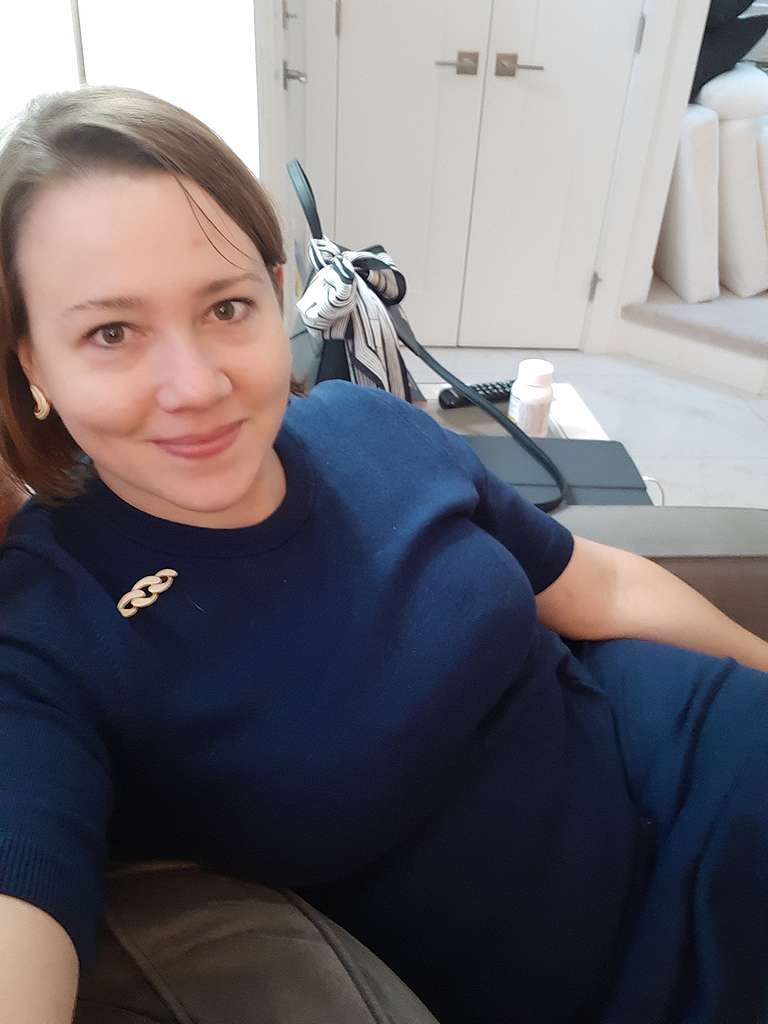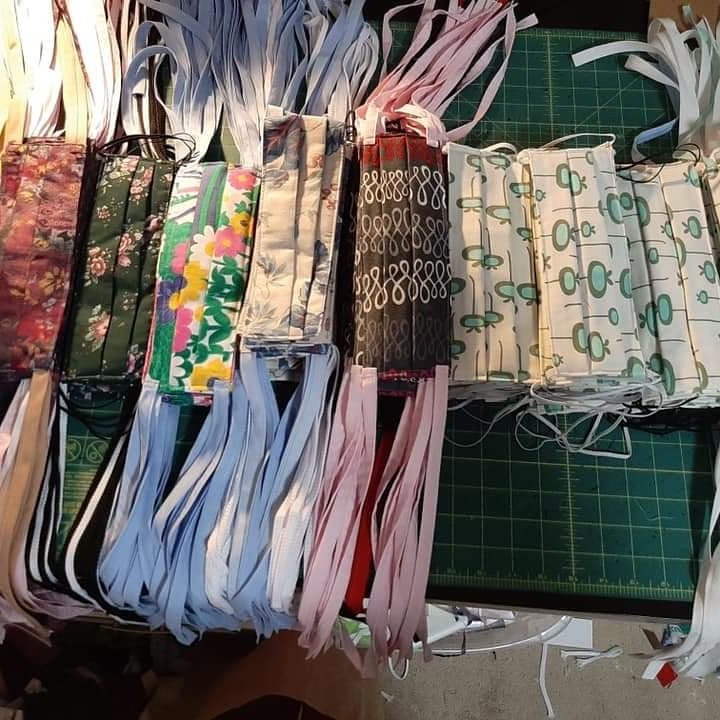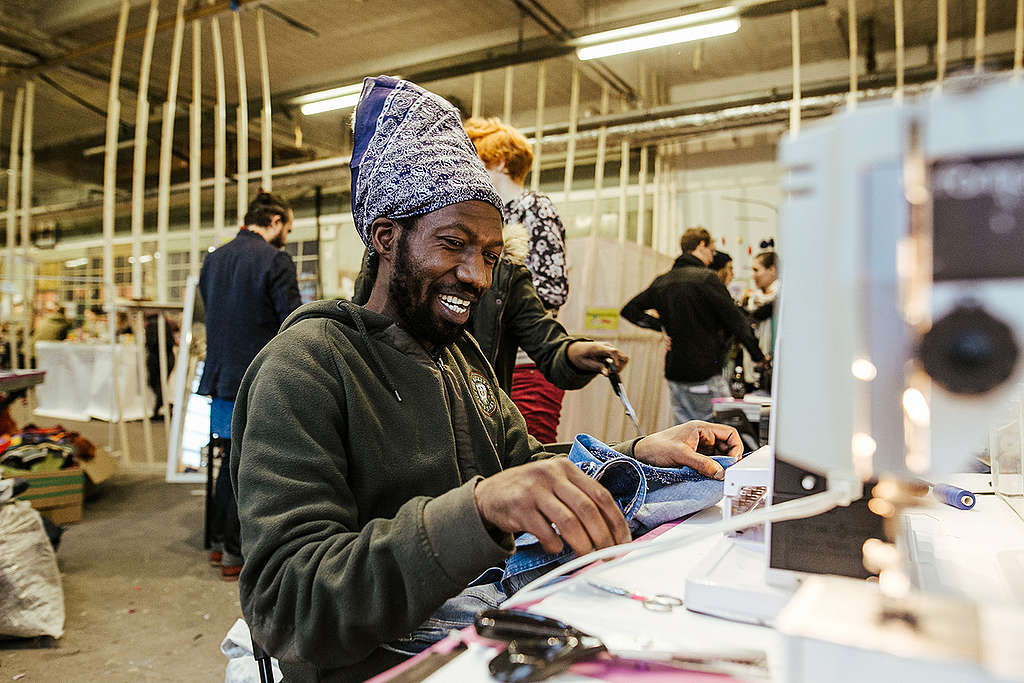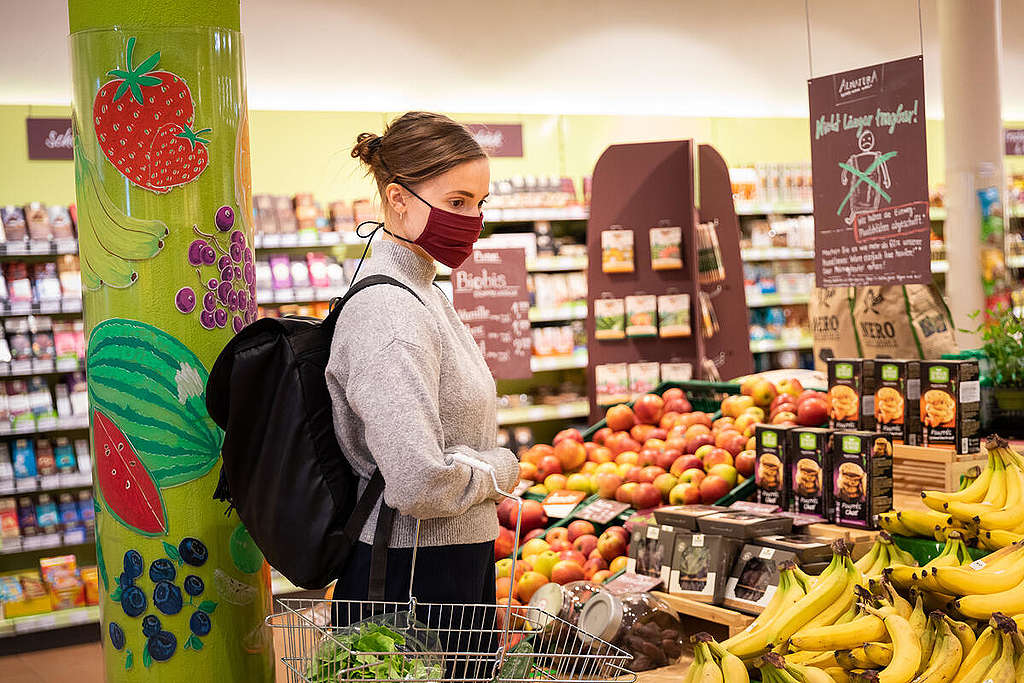“In order for communities to thrive, everyone needs the tools they need to do things out in the world safely. One of the things that I noticed from charting the history and trajectory from the Spanish flu was that the more people who had masks in San Francisco, the healthier that community was.”
– Kristina Kearley

Based in Vancouver, Canask is an informal collective that’s working to flatten the COVID-19 curve by redistributing donations of personal protective equipment, hand soap, sanitizer, sanitizing wipes, and other necessary items to local individuals and organizations that serve low-income, disabled, elderly, quarantined communities.
Coordinator Kristina Kearley went to school for operations management and works in the film industry. When the pandemic struck, she knew supply chains would be critical. Kristina’s been working 12-16 hour days for the past eight weeks to help keep communities healthy.
As of today, Canask has collected 1,200 masks to help the BC Volunteer Cancer drivers return to serving their patients. They are currently working towards mobilizing sewers to help serve First Nations communities in BC with masks, wipes, and face shields.
We sat down with Kristina to talk about how her work helps model a green and just recovery from the COVID-19 pandemic. Read on to hear this change maker’s take!
How is the change you’re leading in your life now connected to system change?
In North America, we’re not really a maker society anymore. But with the pandemic, the manufacturing supply chain can’t meet demand and there are a lot of people being left behind. By gathering resources in the community and creating a transportation network with volunteers who were out of work due to COVID-19, we were able to create a supply chain decentralized from the manufacturing sector.
It’s not hard to create local supply chains. Lots of people have sewing machines and access to fabrics, for example. And we saw how local distilleries repurposed their equipment to make hand sanitizer. A little goes very far and makes a huge difference in people’s lives. The whole process is incredibly empowering, for the people administering our work and the people participating as makers, drivers or volunteers. With a little bit of effort, caring, compassion and attention to detail, we can rebuild these systems that we haven’t utilized in a couple generations.
If we all adopt a maker mentality and a community service mentality, we can adapt to so many of these challenges, like climate change.

What does an economy that takes care of people and our planet look like for you?
In order for communities to thrive, everyone needs the tools to do things out in the world safely. On all the labels of wipes and hand sanitizer our label reads “we’re all in this together.” Nobody can be left behind. Values of service, community and resourcefulness are important.
When we all rely on each other, our businesses and communities will thrive. More and more people will be buying, assisting and contributing locally, and I think that decentralizing principle is going to be a cornerstone of building a better world for all of us.
Right now, we are very much a same-day Amazon delivery culture. Consumers need to be more invested in the supply chain process and remember that a real person has to bring them their products.
Every individual volunteer or worker needs to be honoured and their safety respected and cared for. All those needs must be treated with the same level of regard as business shareholders or clients. We need to place a strong value on their contributions and how much better that contribution makes all of our lives.
Find CanAsk on Facebook or reach out to them at [email protected] if you have skills or relevant materials to donate!

Want to learn more about local supply chains, DIY and the circular economy? Read our expert blog here.

Free Guide: Eco tips to protect against COVID-19
